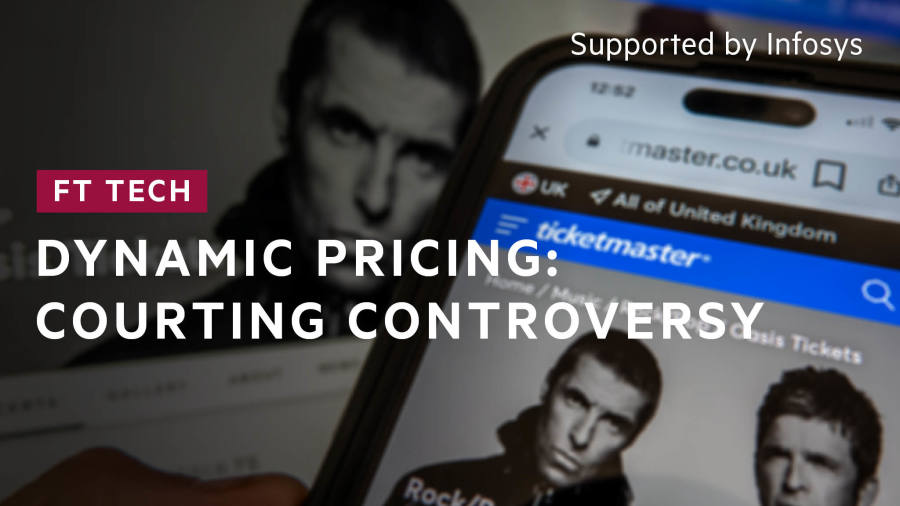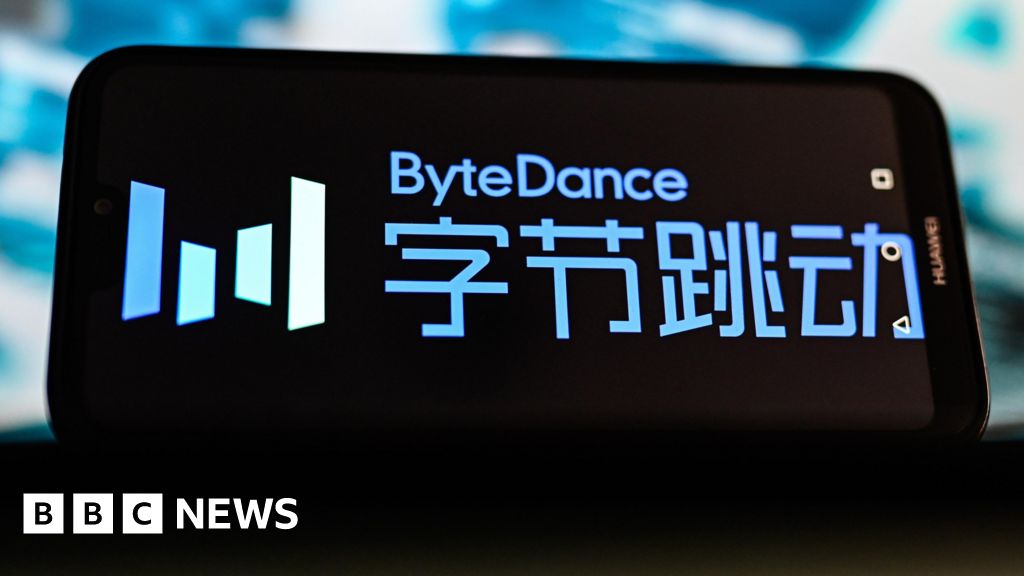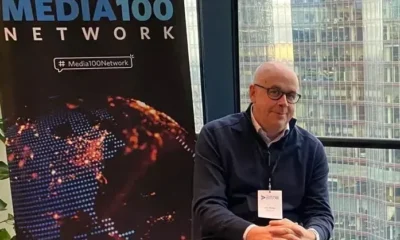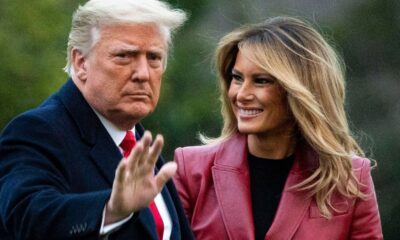This is an audio transcript of the FT News Briefing podcast episode: Uber’s drive for ‘super app’ status
[MUSIC PLAYING]
Kasia Broussalian
Good morning from the Financial Times. Today is Monday, October 21st. And this is your FT News Briefing. Indian investors aren’t buying into one of the country’s biggest IPOs ever. And Uber wants to become a one-stop shop tech company. Plus, some African countries are looking for ways to keep their fossil fuel projects going.
Aanu Adeoye
Basically, their argument is we need to solve what is called energy poverty before we try and think about the green transition.
Kasia Broussalian
I’m Kasia Broussalian and here’s the news you need to start your day:
[MUSIC PLAYING]
The world’s second-biggest IPO of the year is getting off to a rocky start. Hyundai Motor India officially kicks off trading on Tuesday. The $3.3bn listing is the carmaker’s first outside of South Korea. But retail investors have kind of shrugged their shoulders at it. That segment was only 50 per cent subscribed in early trading last week, and it happened despite a major publicity blitz. I’m talking front-page ads all over India’s financial newspapers. This ho-hum demand might have something to do with the recent slowdown in India’s car industry. And that’s making a lot of these retail investors a bit sceptical of Hyundai India’s $19bn valuation.
[MUSIC PLAYING]
Uber is thinking about buying the travel and booking site Expedia. That would be the company’s largest deal ever and get it closer to super app status. The FT’s Stephen Morris is here to explain how Uber plans to go from humble ride-hailing start-up to multipurpose behemoth. Hey, Stephen!
Stephen Morris
Hi.
Kasia Broussalian
So to start, can you just explain this concept of a super app a bit more?
Stephen Morris
Sure. Super app is sort of a one-stop shop for all of your online purchasing life. I mean, you’re seeing these dominate in China. The most notable one is WeChat, which started as a chat platform but expanded out into payments and shopping. And whilst Uber doesn’t quite have ambitions on that grander scale yet, what it wants to do is be the app that you click on when you want to travel anywhere or have anything delivered.
Kasia Broussalian
OK, so Uber wants to become something of a super app lite kind of thing. How does Expedia help it get there?
Stephen Morris
Well, as most people will be aware, Uber started as a ride-hailing technology. You know, basically linking up people that wanted to get somewhere with someone willing to drive them. But in recent years, it’s expanded into other areas such as corporate and business logistics, food delivery — as a lot of people will know. And it has much wider ambitions. The chief executive, his name is Dara, he says anywhere you want to go in your city and anything you want to get, we want to empower you to do so.
Now, Uber is in a good position at the moment. Its shares are on a bit of a tear at the moment and it’s now worth $173bn. So it’s thinking about what to do with the cash to kind of enshrine its position and add more features to its super app. One of the logical things to get into is things like plane bookings, train bookings, hotel bookings. So that’s why Expedia would be attractive as Uber looks what to do with its newfound wealth from its much higher stock price.
Kasia Broussalian
Now, where do things stand with this possible acquisition? I mean, do you think it’s actually gonna go through?
Stephen Morris
We heard about this quite early on and reported it, basically because of the Uber chief executive Dara’s history — serving as Expedia’s CEO from 2005 to 2017. And the fact that he’s still a board member, it makes it legally tricky because obviously, he’s privy to inside strategic and financial information as a board member. So what Uber has done is it’s got bankers and lawyers and consultants to kind of look at whether it would even be possible from a corporate governance perspective. And then furthermore, to look at what price it would be. So I think while this deal may not transpire, it kind of shows that Uber is on the hunt. Uber wants to continue expanding and it’s willing to buy things rather than just grow organically.
Kasia Broussalian
And so what would it mean for the tech sector more broadly if Uber is able to actually achieve a sort of super app status?
Stephen Morris
Well, Uber is kind of emerging as one of the champions with a more sustainable business model showing its first full year of profitability recently. But if it is able to take the next step, we could see its valuation increase by multiples of what it is today. And if it does start getting genuinely into new areas like payments and advertising, it could challenge some of the existing giants like Visa or Mastercard. But also you’re looking at Google and Meta and all the other big ad-driven tech companies.
Kasia Broussalian
Stephen Morris is the FT’s San Francisco bureau chief. Thanks, Stephen.
Stephen Morris
Thank you.
[MUSIC PLAYING]
Kasia Broussalian
There is new hope that a strike at Boeing could end soon. 33,000 machinists from the company walked out over pay more than a month ago and it since crippled production. The union — representing the workers — will vote on Wednesday whether to accept a new proposal which includes a 35 per cent wage increase. But it does not restore a pension plan, and that’s a sticking point for some union members.
The pivotal vote will fall on the same day that Boeing reports its third-quarter earnings, and it’s set to be painful. Even before the strike, the plane maker was facing some serious financial issues. It has even warned that it’ll need to cut 17,000 jobs in order to save money.
[MUSIC PLAYING]
A group of African countries is looking for billions of dollars to help launch an energy bank next year. But maybe not the kind that’s good for the environment. It wants a lender to support fossil fuel projects. A lot of western institutions are starting to step back from those because, well, as you can imagine, fossil fuels aren’t really in vogue any more. Here to give me the scoop on the initiative is my colleague Aanu Adeoye. Hey, Aanu!
Aanu Adeoye
Hi.
Kasia Broussalian
So tell me a little bit more about this coalition and what type of projects it’s helping to fund.
Aanu Adeoye
This coalition is called the African Petroleum Producers’ Organisation. It consists of 18 African countries who, as the name suggests, are producers of crude oil. So these are regional heavyweights like Nigeria, Libya, Angola. And these countries — together with the African Export and Import Bank, which is a partner in the project — are looking to raise $5bn to finance primarily fossil fuel projects.
Kasia Broussalian
But like I mentioned, western institutions maybe aren’t so down to fund these types of projects any more. So what are you hearing about this hesitancy from people on the ground?
Aanu Adeoye
If you talk to anyone who is in this industry in Africa, they say that funding for fossil fuel projects has not completely dried out. But it is becoming much more difficult to convince western traditional bankers of such projects to put money on the continent. And most of them say that this is because of ESG concerns. And, you know, the real fact that the climate is changing and the world is getting warmer. For example, you know, Standard Chartered last year pulled out of a billion-dollar deal to finance a pipeline in Uganda that was supposed to carry crude from Uganda to the Tanzanian coast, because it had become a target for environmental activists. So, you know, when you talk to people in Africa, there’s a sense that funding for fossil fuel projects are starting to become only a trickle.
Kasia Broussalian
But, you know, the bigger issue here is that pulling back from fossil fuels, it kind of makes sense, right? We’re in the middle of a global climate crisis. So I guess, what’s the argument from this coalition to keep fossil fuel projects going?
Aanu Adeoye
Yeah. One thing that the people behind this coalition always make clear is that they believe in climate change. So this is not a group of, you know, kooky people who don’t believe that the world is warming. But what they are saying is that Africa has not contributed that much to climate change. That a lot of developed western countries, you know, the US, European countries and you know China as well — they have all industrialised using fossil fuel to turbocharge growth in their country.
And what people in this coalition are saying is that because there hasn’t been that much of an investment in the green transition in Africa, it should be allowed to develop its fossil fuel projects. Because if you stop, you’re going to drive more and more people into poverty. So basically their argument is we need to solve what is called energy poverty before we try and think about the green transition.
Kasia Broussalian
Aanu is the FT’s west and central Africa correspondent. Thanks, Aanu.
Aanu Adeoye
Thank you.
[MUSIC PLAYING]
Kasia Broussalian
And finally, let’s talk about Elon Musk.
Elon Musk voice clip
I have a surprise for you.
Kasia Broussalian
Over the weekend, the billionaire entrepreneur gave out a $1mn cheque to someone at a rally in Pennsylvania. Musk was campaigning for Donald Trump.
Elon Musk voice clip
By the way, John had no idea. So, anyway, you’re welcome.
Kasia Broussalian
It’s part of this Oprah-like giveaway to registered voters in swing states. They need to sign his political action committee’s petition on free speech and gun rights.
Elon Musk voice clip
Yeah. So I think this is kind of fun. And it seems like a good use of money, basically.
Kasia Broussalian
But legal scholars say the raffle might violate US election rules. Federal law states that you can’t offer financial incentives to vote. Pennsylvania governor Josh Shapiro — who’s a Democrat — said on Sunday that the move was something, quote, law enforcement can take a look at.
You can read more on all of these stories for free when you click the links in our show notes. This has been your daily FT News Briefing. Make sure you check back tomorrow for the latest business news.
[MUSIC PLAYING]





























































































































































You must be logged in to post a comment Login